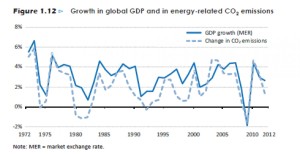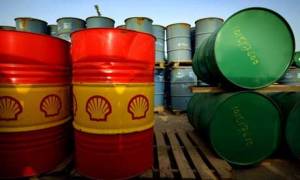This is the first in a (hopefully) running series relaying the most important recent stories on environmental justice. The goal is both to provide updates and critical commentary on what’s happening in the world right now. No need to read the news, but if you want to explore further, we provide the links.
Featuring: indigenous struggles around the world, how a carbon economy leads to violent conflicts initiated by nations, and thoughts about GMOs, urban pollution, and food prices leading to unrest.
Must-reads
A new piece by Herman Daly criticizing GDP as the only measure of value.
“Around the world, social unrest starts with soaring food prices.” Enough said.
Why is Coca-Cola championing land rights and taking a stance against land-grabbing?
In response to all this talk about “energy independence”, an incisive piece from the Post-Carbon Institute.
Eric Holt-Giménez rips apart Jonathan Foley (of “Solutions for a cultivated planet” fame) from a food justice perspective.
A stunning piece by a citizen journalist tracing the decline of an empire… from the inside.
Indigenous struggles
A piece about how mega-projects are violating indigenous rights in Brazil (including the World Cup). Another piece about how the indigenous in Latin America are battling natural resource extraction.
Maasai in Tanzania win the fight against a Boston safari company’s #landgrabs and violence.
“This is a big day for our communities. The court’s decision means that U.S. companies can’t come to our home, steal our land, and abuse our people without facing accountability in their own home.” – Daniel Ngoitiko, elected councilor of Soitsambu Ward, Tanzania
Meanwhile, in the Philippines, armed security guards shot at members of an indigenous tribe in an effort to intimidate them from claiming their rights to ancestral land.
In Peru, a new report by the UN Rapporteur to Indigenous Rights and indigenous groups contest the government’s new indigenous laws.
Back in Canada, the same rapporteur, James Anaya, released a report documenting the atrocities of government-indigenous relationships. Carolyn Bennet provides a mean summary.
The Guardian connects war, conflict, and indigenous rights.
Carbon economy
A rise in the amount of work-place deaths in the US is linked to oil-and-gas boom. The US saw several pipeline ruptures, one in Los Angeles and fracking leaks in Ohio.
Canada sells endangered Caribou habitat to big oil companies.
We have to understand Russia’s recent takeover of Crimea as not just ideological, but as an oil-grab. These kinds of conflicts will only increase in a world of peak oil.
In the Democratic Republic of Congo, park wardens have received death threats for organizing against oil drilling in Africa’s most diverse ecosystem. This story needs to be followed.
China admirably announces a “war on smog” by tripling solar power development by 2017. This seems almost tongue-in-cheek, however, as they simultaneously send a flotilla of warships to defend their new oil well in Vietnam’s waters. There’s no stopping the world’s largest carbon economy, even as they move peasants to the city by force and then kill them with highly carcinogenic smog. Chinese citizens are stepping up the fight against environmental injustice, leading to violence and police repression.
Climate Change
The White House releases a report on climate change, sending Republicans into a cave of denialism. However, the solutions suggested by the Obama administration remain firmly market-oriented.
Averting planetary disaster will mean forcing fossil fuel companies to give up at least $10 trillion in wealth. Read the Nation article.
Saddening news that Antarctic glacier could melt faster than expected, quickly leading to rise of about 1 meter of sea level.
How Climate Change Helps Fuel Nigeria’s Instability.
Inspirational piece about the Tar Sands movement in North America.
Stanford divests from fossil fuels. This is a victory in the context of the divestment movement, raising awareness about the pervasiveness of our carbon economy, but obviously doesn’t really have any financial effect on that economy.
A round-up of all the worst shit climate change will lead to.
The US is hit by droughts and fires. Prisoners will be the ones dousing them… one of the most striking examples of how climate change, the prison-industrial system, and racism intersect. Farmers hit by drought and frackers needing water for extraction are butting heads.
Odds & Ends
Vermont is the first US state to require GM labeling. Another consumerist response that won’t do much to address a high-input, high-waste-output food system. We really need to start seeing GMOs from an environmental justice perspective, not as a problem of “unnatural” and “unhealthy”, essentially a form of affluent environmentalism.
India elects its new Prime Minister, and meanwhile the WHO releases a report saying that New Delhi is the most polluted city in the world. Development for the Global South all-too-often means pollution for the world’s poorest.
EJOLT publishes documentary on Rio Tinto mine in Namibia. The Guardian reports.
How African cities have grown over 200 years. Fascinating!
A new report by FIAN criticizing the G8’s plan for food security in Africa. Opening markets ≠ addressing hunger.
A great piece connecting the drive for “sustainable growth” in Africa with land-grabbing and violence in Liberia, and documenting local communities’ resistance.
Read the story about how community forestry is diffusing Africa’s longest-running violent conflict.
The Mediterranean has become the grave of migrants. We need to understand that, like the walls built between the US and Mexico and Israel and Palestine, the Mediterranean is a natural wall keeping those from the periphery from entering the wealthy core.



